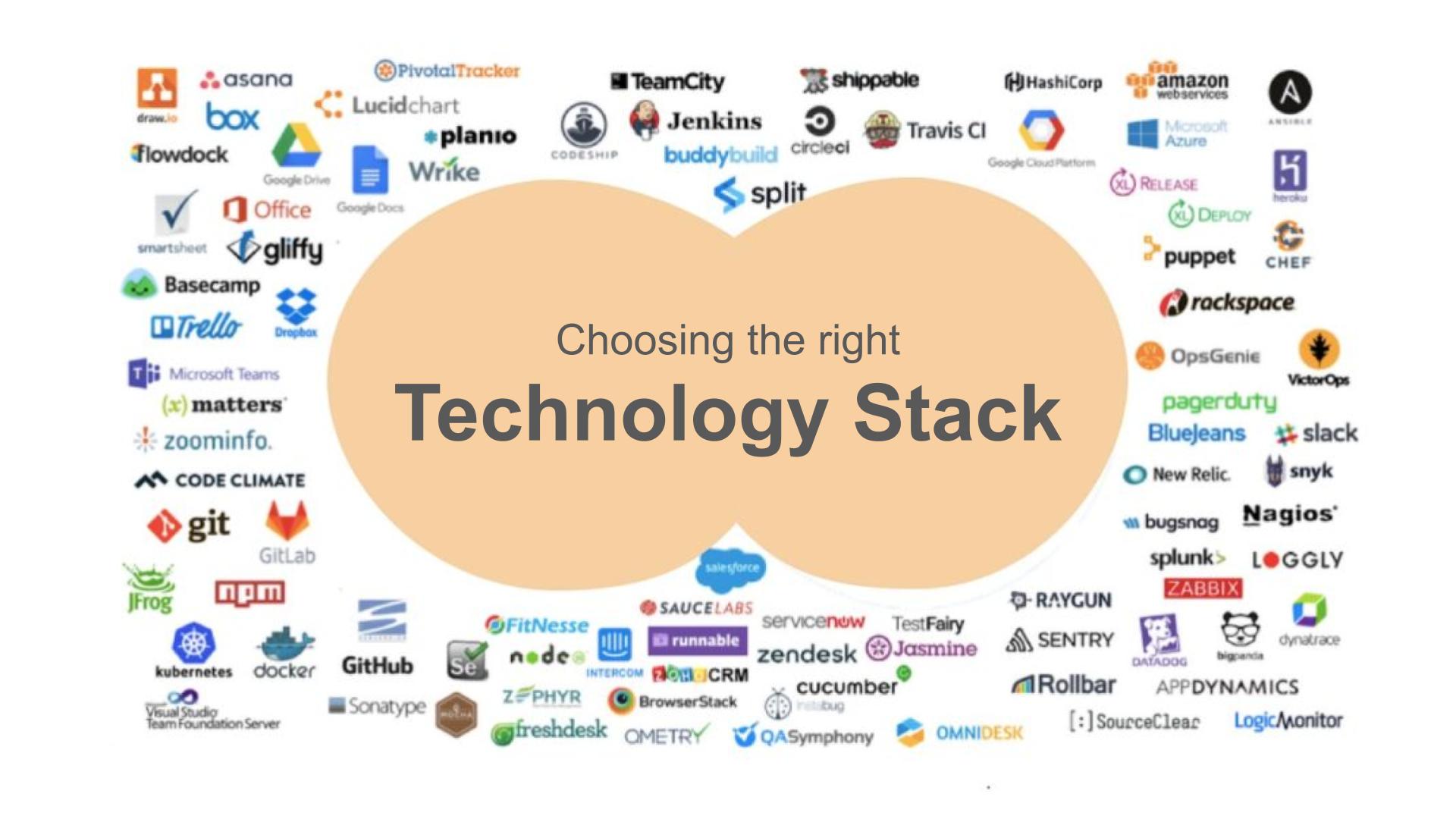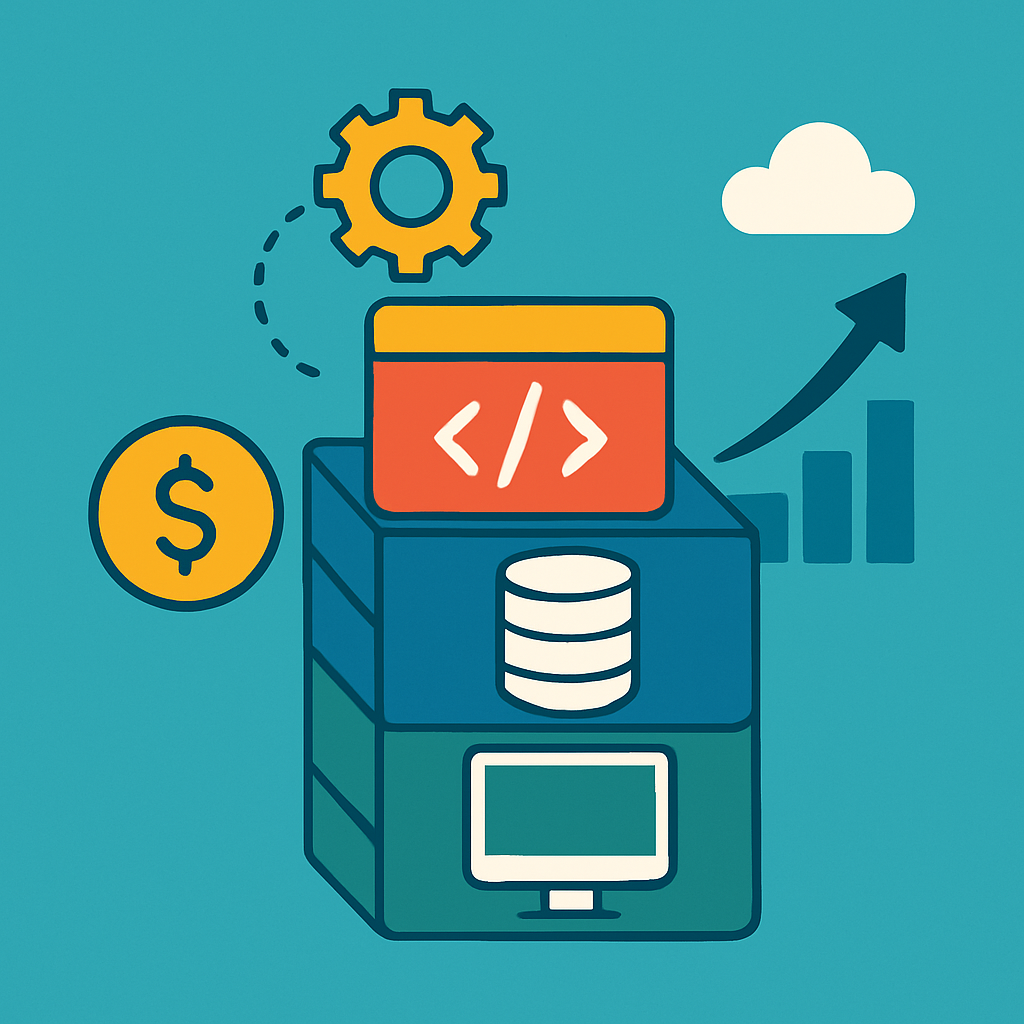When launching a digital product – especially as a startup or SME – it’s tempting to focus entirely on UI mockups, feature sets, and go-to-market timelines. But underneath all of that lies a silent but powerful force: your technology stack. It can quietly power your growth – or become a costly bottleneck.
Let’s break down why choosing the right tech stack is a business decision just as much as a technical one.
🔍 What is a Tech Stack, Really?
A tech stack is the combination of programming languages, frameworks, libraries, and tools used to build and run your application. It usually includes:
- Frontend: What users see (React, Vue, Angular)
- Backend: Logic and database interaction (Node.js, Django, Laravel, .NET)
- Database: Data storage (MySQL, PostgreSQL, MongoDB, etc.)
- Infrastructure: Hosting and DevOps (AWS, Azure, GCP, Docker, Kubernetes)
✅ Pros & Cons: Choosing the Stack That Matches Your Goals
| Stack Type | Pros | Cons |
| Monolith (e.g., Django, Laravel) | Fast to build, great for MVPs | Harder to scale modularly |
| Microservices (e.g., Node.js + services) | Scalable, flexible | Complex to manage early on |
| Serverless (e.g., Firebase, Supabase) | Fast deployment, low ops overhead | Vendor lock-in, scaling costs |
| Full-Stack JavaScript (MERN/MEVN) | One language across stack, good hiring pool | May lack robust backend features for complex apps |
| Strongly-Typed (e.g., .NET, Java) | Enterprise-grade, secure | Slower initial dev, steeper learning curve |
📈 At What Stage & Scale Does It Matter?
- Early-Stage / MVP
Focus on speed, simplicity, and cost-efficiency. Use frameworks that allow rapid prototyping (e.g., Django, React, Firebase). - Growth Stage
Scalability, maintainability, and developer efficiency matter. Time to modularize, optimize performance, and ensure APIs can evolve. - Scaling Stage
Think architecture: microservices, CI/CD, cloud-native infrastructure, and resource availability (is it easy to hire devs who know your stack?).
🔧 Why the Right Stack Impacts More Than Just Code
💡 1. Maintenance & Tech Debt
Choosing outdated or obscure tech leads to maintenance nightmares. Stick to actively maintained, community-supported tools.
🚀 2. Feature Expansion
Can you easily plug in new features or third-party integrations? Choose stacks with modular architecture and strong ecosystems.
👥 3. Hiring Talent
Using niche or outdated tech will make hiring hard—and expensive. Popular stacks like Node.js, React, and Python reduce friction.
📊 4. Performance & Scaling
Some stacks are better for high-load apps (Go, .NET, etc.), while others thrive in speed of iteration (JavaScript, Python). Match stack with your product vision.
🧭 Final Thoughts: Make It a Strategic Call
The right tech stack is not the one that’s trending—it’s the one that fits your current needs and future ambitions. It impacts:
- Development speed
- Budget and burn rate
- Product stability
- Developer productivity
- Long-term scalability
At Techno Stack Labs, we help startups and SMEs choose and implement stacks that don’t just work—but work smartly, sustainably, and strategically.
💬 Need help picking your stack or evaluating what you’re using now?
Let’s talk. A 30-minute discovery call could save you 6 months of rebuild later.



